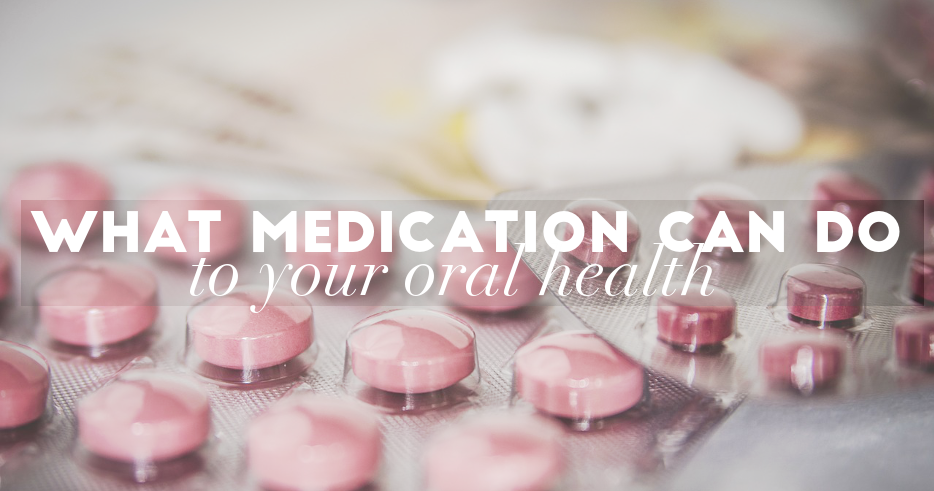
While taking certain medications can help treat disease and lead to better overall health, some medications can harm your teeth and gums.
The side effects of some medications can lead to the following oral health issues:
Abnormal bleeding
Some medications such as heparin or warfarin are used to thin blood. Taking these drugs means that your blood does not clot normally, this can be good for patients who are trying to prevent stroke or heart disease, but can cause issues during oral surgery or treatment for periodontal disease. After oral surgery, you need blood clots to prevent dry socket and other complications, without clots you may experience a lot of pain.
Talk to your dentist about the medications you are taking before deciding on a treatment or surgery.
Soft-tissue reactions
Some medications may cause sores in the mouth, inflammation, or discoloration of the soft tissues, such as gums. If you are on blood pressure medication, oral contraceptives, or chemotherapeutic agents, talk to your dentist about oral health treatment.
Dry mouth
Many medications can cause dry mouth. Over-the-counter medications such as decongestants and painkillers can cause dry mouth, as well as prescription medications such as antidepressants, muscle relaxants, and high blood pressure medications.
Dry mouth can cause cavities and decay because there is not enough saliva in the mouth to wash away bacteria. Instead, the acid and bacteria in the mouth can run rampant and cause decay.
Always make sure to tell your dentist about the medications that you are on and discuss side effects with them. When dentists know your full health history, they can better consider treatment options.
http://www.colgate.com/en/us/oc/oral-health/life-stages/adult-oral-care/article/ada-06-medications-side-effects





